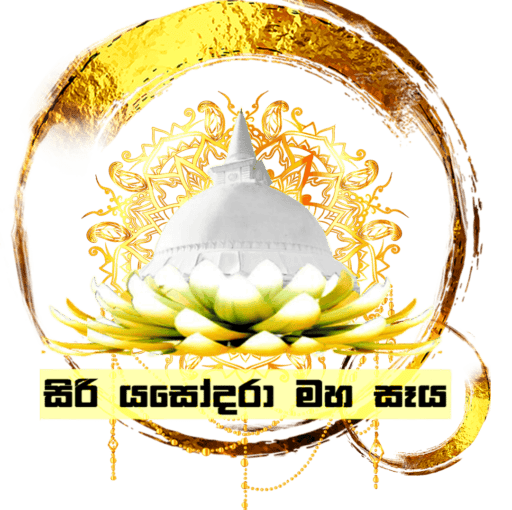Father and Mother Nakula
The town called Suṃsumāragiri (Crocodile Hill) was located in the country of the Bhaggas in the Ganges Valley, and it was here that the Blessed One spent one of the forty-five rainy seasons of his ministry (MN 15). Once, when the Buddha was walking through the streets of the town, a citizen prostrated himself at his feet and cried:
“My dear son, why have you never called on us? Now please honour our home, so that your aged mother may lay her eyes on you, too!”
The man was not out of his mind. The fact is that in former births he and his wife had been the Bodhisatta’s parents not once but five hundred times, and many more times they had been his uncle, aunt, and grandparents. A faint memory of this had lingered on, and at the sight of the Blessed One full recollection had broken forth and overpowered the old man. Incidents of this kind still sometimes happen in Asian countries even today.
This old man was the householder Nakulapitā (Father Nakula); his wife was known as Nakulamātā (Mother Nakula). They are mentioned together by the Buddha as being among the foremost of his lay disciples, particularly for their unfaltering faithfulness to each other. The brief account of them in the Pāli Canon depicts a conjugal love of divine stature, accompanied by absolute trust based upon their common faith in the Blessed One.
When the Buddha received an invitation to their home, Father Nakula gave him an account of their marriage. Although he had been married very young, he said, he had not once broken faith with his wife throughout the years, not even in thought, let alone in deed. And Mother Nakula made the same declaration on her part. Neither husband nor wife had ever deviated for a moment from their mutual fidelity.
In their devotion, both of them expressed a longing to be together again in their future lives, and they asked the Master what they could do to ensure that they got their wish (AN 4:55). The Buddha did not reject the question or criticize their aspiration. He replied:
“Should a husband and wife wish to enjoy each other’s company in this life and afterward to meet again in the next, they should cultivate the same faith, the same virtue, the same generosity, and the same wisdom. Then they will meet again in their next lives.”
And the Buddha added these stanzas:
When both are faithful and bountiful,
Self-restrained, of righteous living,
They come together as husband and wife
Full of love for each other.
Many blessings come their way,
They dwell together in happiness,
Their enemies are left dejected,
When both are equal in virtue.
Having lived by Dhamma in this world,
The same in virtue and observance,
They rejoice after death in the deva-world,
Enjoying an abundance of pleasure.
How a man of lofty aspirations may live with a woman his peer, guarded by virtue, is explained by the Blessed One elsewhere. There he says that not only do both consorts abide by the Five Precepts, but over and above this they are virtuous and noble-minded; when asked for help they never refuse, and they never despise or insult ascetics and brahmins (AN 4:54). In the light of these words it can easily be seen how much is expected of a couple like that: not religious piety only, but also a heart staunch enough to be detached from the petty events of everyday life and everything that is low and base. It is frequently said of the white-clad lay follower that he does not refuse requests and easily forgoes his own wishes or pleasures. This shows a detachment from persons and things, a capacity for letting go and relinquishment. From this comes inner freedom, the only sound basis for the cultivation of wisdom. Virtue in action, renunciation in the heart, wisdom in the mind—these factors make for harmonious and gentle life together.
Knowledge concerning rebirth and of ways to obtain a favourable one was common in India at that time. In the case of the couple Nakula, since they actually remembered some of their previous lives, it was not necessary to enlarge on the subject. The Blessed One’s concise reply was all they needed.

-
Save
The prerequisites for harmonious married life are explained by the Buddha in more detail in the Sigālovāda Sutta (DN 31). There we read that the husband—who is responsible for taking the initiative—should relate to his wife in five ways: he should treat her with respect; he should not disdain her; he should be faithful to her; he should allow her authority in the household; and he should provide her with all necessities and adornments according to his means. If he conducts himself thus, his wife will take pride in looking after his needs; the household will run smoothly; she will treat callers and servants politely; she will be faithful; she will protect his property and carry out her tasks skilfully and dutifully.
The Nakulas were not solely concerned with a favourable rebirth: they also took interest in the lawfulness governing human life and in the deeper problems of existence. Once Father Nakula asked the Blessed One why it is that some people attain to emancipation and others do not. The answer was:
“Whosoever clings to the objects perceived by the senses cannot gain liberation. Whoever stops clinging will be liberated” (SN 35:131).
This is a reply which, in its concentrated terseness, can be fully comprehend only by one well versed in the Dhamma, but Nakula grasped its implications at once.
On another occasion Father Nakula went to pay homage to the Buddha. He was now aged and infirm, he said, and only on rare occasions could he see the Blessed One. Would the Buddha out of compassion give him a word of spiritual guidance to hold and treasure? The Buddha replied:
“The body is subject to sickness and decay, a burden even in the best circumstances. Hence one should train oneself thus: ‘Though my bodily frame is ill, my mind shall not be ill.”’
Soon afterwards, Nakula met the Venerable Sāriputta, who addressed him with the words,
“Your deportment is calm, householder, and your features serene. Did you hear a Dhamma discourse from the Master today?”
“So it is,” Nakula answered. “The Blessed One has this very day comforted me with his ambrosial words.”
Upon hearing this, Sāriputta gave a full explanation of the Buddha’s concise words, expounding on the way to overcome physical sickness by not identifying with the five aggregates. When the time comes—as it inevitably does—that the evanescence of things becomes evident, the well-trained person does not despair but coolly looks on with equanimity. His body may wither, but his heart remains sound (SN 22:1).
It was not only Father Nakula who strove for wisdom to overcome death. His wife resembled him in this respect, as can be seen by another report (AN 6:16). When her husband fell dangerously ill, Mother Nakula consoled him thus:
Do not harbour distress at the thought of my being left behind. To die like that is agonizing, so our Master has advised against it. For six very good reasons you need not be concerned about me: I am skilled at spinning, and so shall be able to support the children; after having lived the home life chastely with you for sixteen years I shall never consider taking another husband; I shall never cease seeing the Master and his bhikkhus, but rather visit them even more frequently than before; I am firmly established in virtue and have attained to peace of mind; and lastly, I have found firm footing in the Dhamma and am bound for final deliverance.
Encouraged by these words, Father Nakula recovered from his illness. As soon as he was able to walk he went to the Buddha and recounted his wife’s words. The Lord thereupon confirmed that to have such a wife was indeed a blessing. He said:
“You are truly blessed, householder, in having Mother Nakula as a mentor and adviser who is solicitous and concerned for your welfare. Mother Nakula is indeed one of the white-clad female devotees who are perfect in virtue, stilled of mind, and firmly established in the Dhamma.”
Here a solution is given for reconciling the seemingly opposite tendencies of life: the deep affection between husband and wife on the one hand, and the striving for deliverance on the other. Looking sympathetically at this story of the Nakula couple, one may come to think that a life of renunciation may not be necessary if a married life is led in such an exemplary way, or that one can even combine attachment and detachment. But if one looks more closely one will see that it is far from easy to follow faithfully the life led by that noble couple. It is not enough that there is concern and solicitude for one another. The conditions for a married life in chaste companionship must not be overlooked. The spouses who in their youth had led a married life of sensual fulfilment did not abstain from physical contact only in old age, when the senses were quieted, but they voluntarily lived a celibate life much earlier. In the case of the Nakula couple, they had lived without physical connection for sixteen years, as their words to the Master testify.
Hence the individual wishing to take the first steps on the road to emancipation should make a personal decision: to remain in the home environment and try to outgrow its sensual temptations, or to overcome worldliness as a member of the Sangha in the congenial company of exemplary fellow celibates. As long as the Enlightened One himself, the incomparable guide of those to be trained, was at the head of the Order, the decision was not so difficult. But even today those who do not feel fitted for life in a monastic community may also lack the strength of character to renounce sexual relations in a married life devoted to progress on the path. Both ways of life will demand acts of renunciation.
(From the book: GREAT DISCIPLES OF THE BUDDHA – NYANAPONIKA THERA AND HELMUTH HECKER , Edited with an Introduction by BHIKKHU BODHI)
